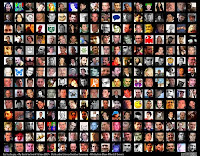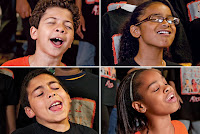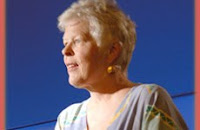
To be technology savvy or not to be, that is the question. In this modern era, being able to use technology is critical to every individual. When I first walked in the EDM 310 classroom, I thought I was entering into one of those remedial computer classes that provides the how-tos about Microsoft Word, Excel, Powerpoint, etc. Oh boy was I awakened when I received the syllabus! I have learned so much in Dr. Strange's class. One major component that I will bring along my life journey is blogs. Blogs bring freedom. As a child, I used to write all the time! When I got older, the pleasure of writing came to a halt when my assignments started becoming more tedious and filled with specific criteria. This semester, I have rediscovered this passion I used to have with the completion of my weekly blogs. Even though there was a specifc question I had to answer, Dr. Strange gave us the freedom to pursue the topic in our own way. Also, I learned that Google has everything a student or professional might need, whether it be an email account, a search engine, or even a device to be able to share documents with others.
2. Even though we learned how to make pictures accessible to the blind and the deaf, I would have enjoyed finding out more information about catering to the disabled populations using technology.
3. There was not a thing in the curriculum that I found to be unexcitable.
4. Yes, I had so much fun in EDM 310. I did not mind going to class each day because I knew there were plenty of things for me to learn about. I enjoyed the skype sessions that we had with several people from Dr. Strange's Personal Learning Network. They made reality click for me. Networking is important! Technology allows us to build the connections we would have never been able to do any other way.
5. I found the Podcasts on Itunes to be quite "intellectually interesting." Since I have a Zune, instead of an Ipod, I was not familiar with Itunes before EDM 310. The podcasts are segments of radio-type database where individuals can discuss any subject he or she feels entitled to. I found the Podcasts made especially for college students to be quite helpful in research and current event ideas.
6. I was bored when there was nothing to do on the agenda. Personally, I like structure in my classes. As long as I have something to work on, I am content.
7. Instead of having many things be due on the last day of class, I would suggest creating more deadlines for the projects and assignments during the semester. Also, I enjoyed utilizing different mediums of media to create projects! I have always found projects to be fun and it allowed me to get to know some of my fellow classmates.
8.Like I have mentioned in my previous blogs, I know more about technology now than I did before this semester. But, a person can never be fully technologically literate because of the new programs/applications that are being developed each and every day. I will call myself fairly literate though for this question's sake!
9. I will take advantage of everything Google has to offer. It has already helped me in many assignments this past semester. Also I will keep up a blog for personal and professional use(once I become a teacher). I will try to incorporate many things I have learned about in EDM 310 into my own classroom, like Google Earth and Geocaching.






















 http://itunes.com
http://itunes.com